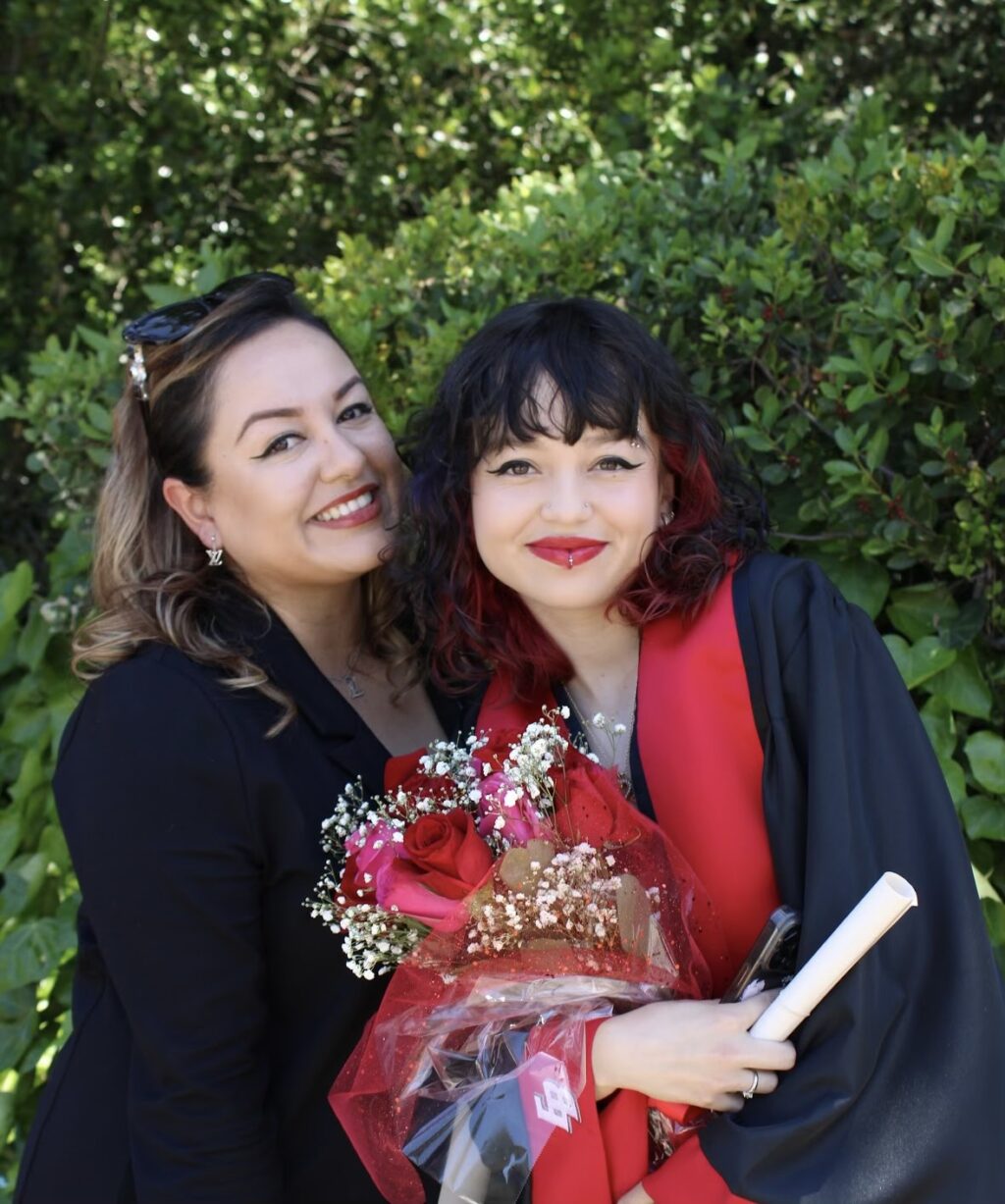
As the U.S. heads into the final lead-up to the 2024 presidential election, longtime IIBA client and permanent resident Claudia has been working diligently behind the scenes to make sure voters in Alameda County have everything they need to make their voices heard. As an elections technician at the Alameda County Registrar of Voters, Claudia manages 24 voting centers across Berkeley, Livermore, Pleasanton and Dublin, preparing each site for voters and supporting poll workers once voting begins. On the first Saturday of voting, Claudia and her team are as “busy as you can never imagine,” answering questions and troubleshooting issues the election workers call in with, as well as delivering additional supplies and signage to each center and smoothing out any other wrinkles that come up.
Election Day itself is almost a 24-hour workday, with Claudia and the other election technicians starting at 5 a.m. and sometimes working until 2 a.m. the next morning. Yet hers is anything but seasonal work: “It actually takes us a whole year to prepare for the elections,” Claudia says. “Plus we do voter outreach programs within the community, like high school student registrations and oath ceremonies for new citizens.”
Claudia, who has worked with IIBA for many years, first to secure her U visa and permanent residency and now to apply for naturalization, hopes the next oath ceremony she attends will be her own. The chance to participate in the elections she has helped run for more than 10 years will be a proud moment for her: “I’m most looking forward to being able to finally vote! It will mean a lot to me.”
How did your career in election work start?
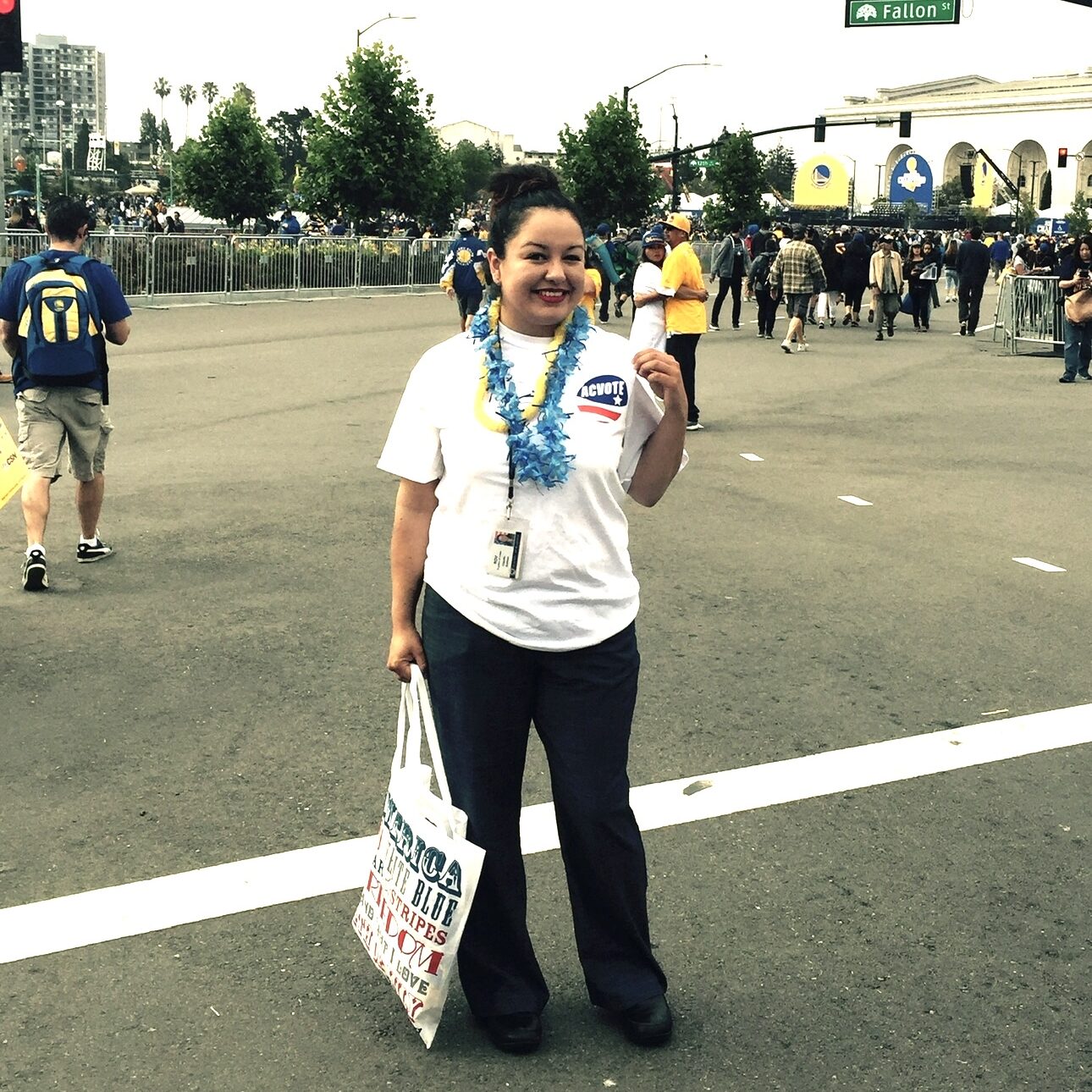
I started as a bilingual instructor at the Alameda County Registrar of Voters, teaching the election workers how to set up the polling place, process the voters, and learn all the procedures. Then they promoted me to training coordinator, so I was in charge of teaching all the future instructors who would train the election workers. We were training 6,000-9,000 election workers per election. I had always wanted to be a teacher, but I never even dreamed that I could teach in this country, because it’s not my country, it’s not my language. But I practiced a lot, I studied a lot, and I overcame that fear of having the language barrier and eventually taught whole classes in English.
Some people may think you have to be a citizen to support our democracy, but you’ve proven that’s not the case. How do you encourage other green card holders to get involved with civic life?
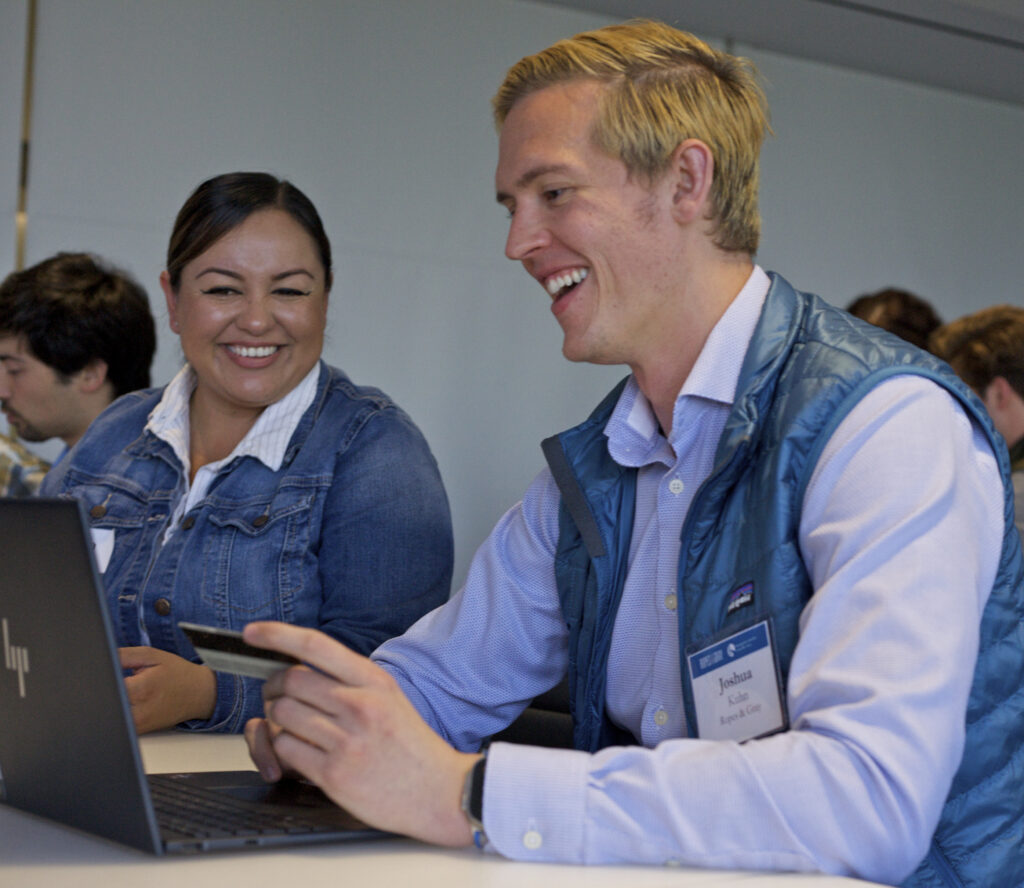
Green card holders can become election workers, especially if they’re bilingual because there’s a need for a lot of bilingual election workers. We need to have a certain number of election workers that speak Chinese, Tagalog, Vietnamese, and Spanish, which are the four biggest languages in Alameda County, but other languages are needed too. Our office also provides a letter that green card holders can bring to their citizenship appointment to show that they have been serving their country by being an election worker.
What’s something you want other immigrants to know about the immigration process?
I think some people don’t have confidence or they’re scared to even navigate the process. So I try to explain to them not to be scared, to navigate the process with confidence, and to know that even if they don’t qualify for legal services, they won’t be jeopardized. There’s no harm in talking to IIBA; it can only help.
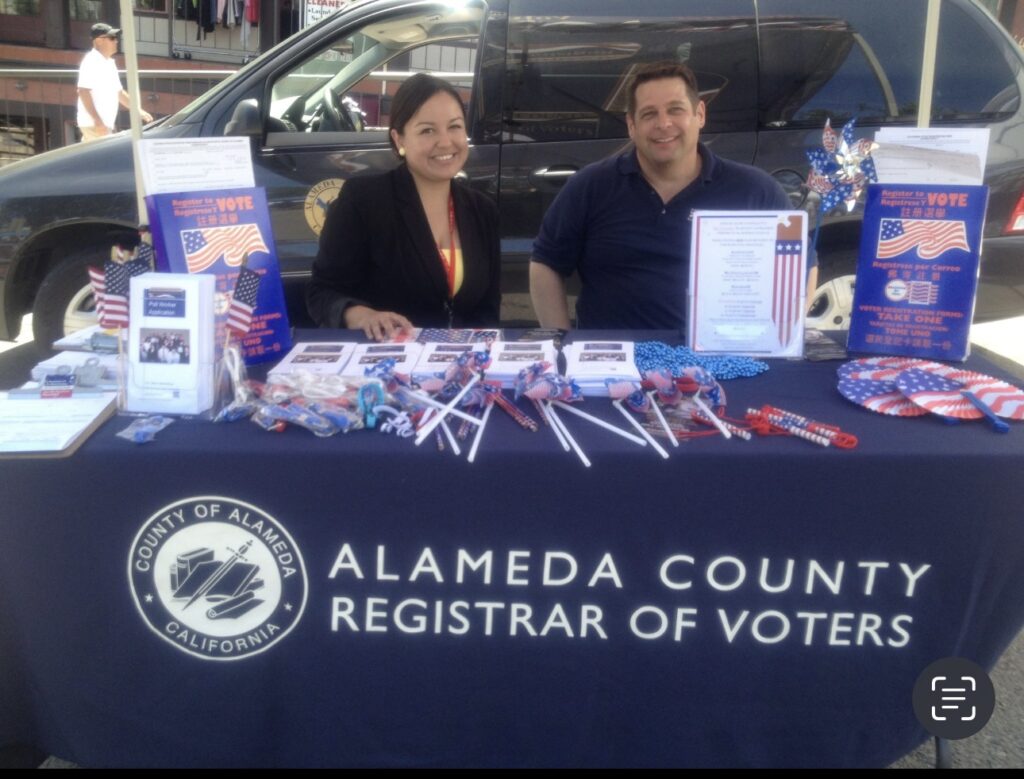
What makes IIBA worthy of that kind of trust?
For me it was the whole experience. They were very supportive and helpful at all times with anything that I needed, documents or procedures that I needed to get done, they let me know. I knew this was not going to harm me. So I feel like people really need to know that IIBA will not put them in danger.
What is one thing you want all people to know about what it’s like to be an immigrant?
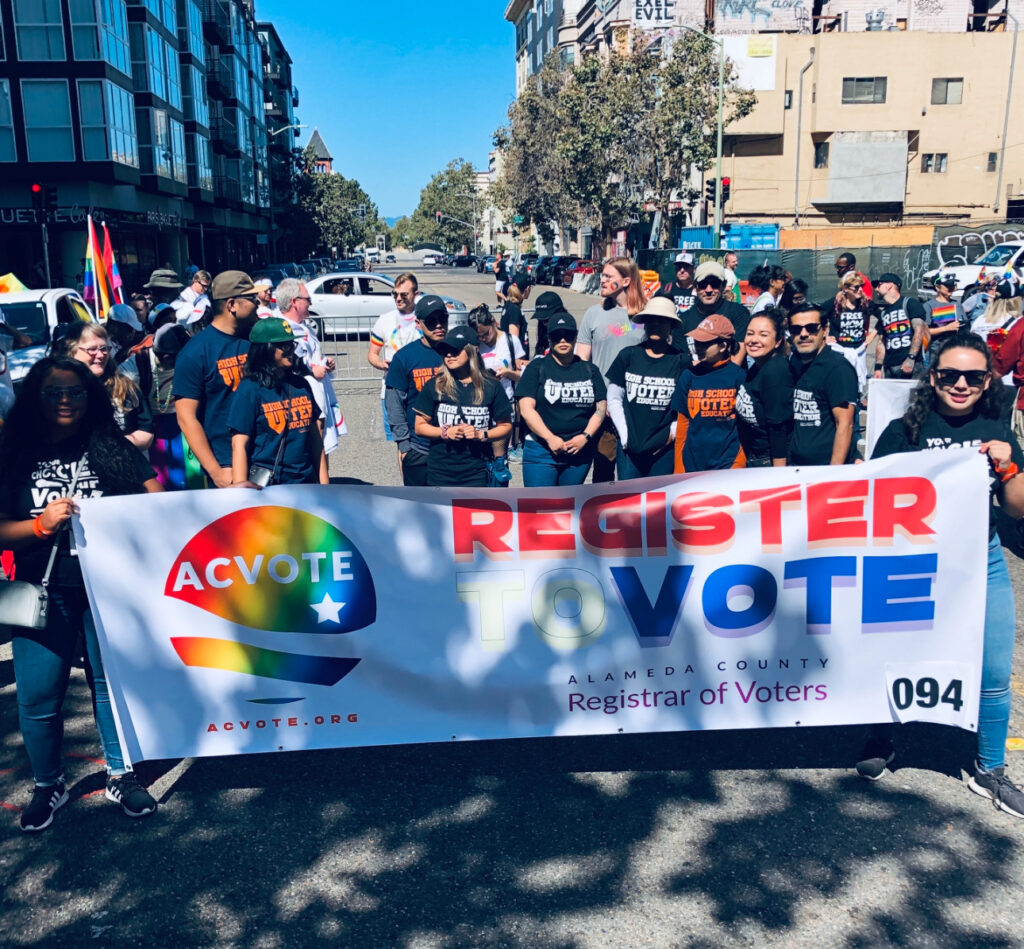
The hard work that we have to put in and the sacrifices we’ve made in leaving our family behind. When I left Mexico, I didn’t see my father or my mother or my brothers for 16 years. My brothers were very little when I came to the U.S., and when I got back they were all grown. So I know I missed a lot. But I said everything is gonna be worth it, because I was able to work and send the money so they could go to university and now they have careers. So it was very helpful to think that I still did something good for them.
Who are some of the main influences in your life?
My teachers of course because I had always wanted to be a teacher since I was little. Every teacher that I had throughout my life, they left something from them on me even though they don’t know it. My mother and father also gave me their encouragement and their knowledge. My whole upbringing was all a part of them, showing me to work hard and to not be afraid.
What’s next for you?
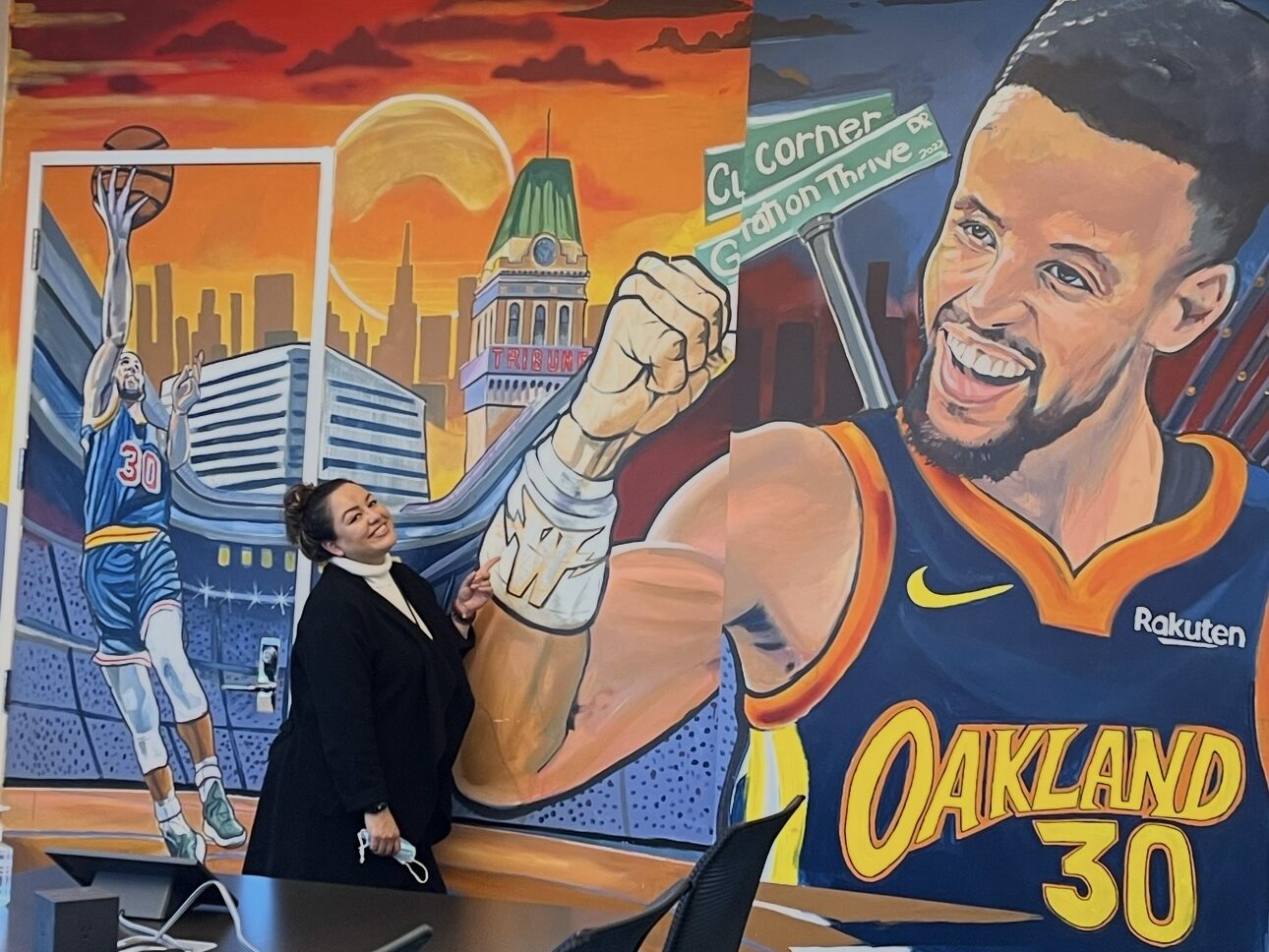
I want to get my GED and go back to college. My daughter already graduated college, so now it’s my turn. I want to grow my career. I am also looking to become an instructor for IIBA’s citizenship classes. I really want to participate because this organization has helped me so much, and I want to help other people as well.
